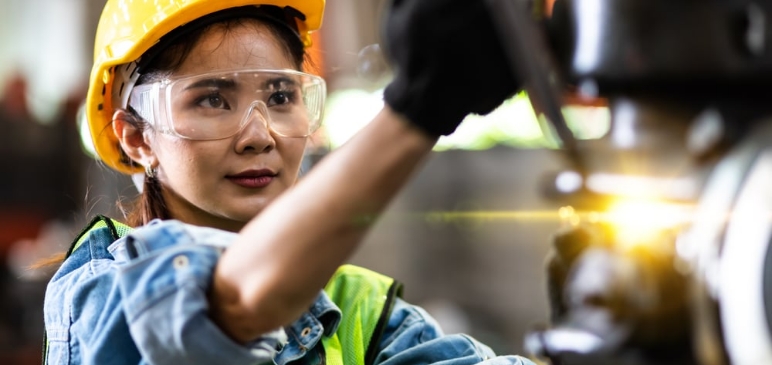
October 7th, 2025
A team of dedicated Rehabilitation Service Professionals will support you in your rehabilitation journey. Depending on your needs, your team may include an occupational therapist (OT). An OT can help you build routines, adapt day to day tasks, and use tools to help make life easier and more fulfilling.
If you’ve been referred for an occupational therapy assessment, you might be wondering: What exactly is occupational therapy? What will happen at my appointments? How will this help me in my everyday life?
At Partners in Canadian Veteran Rehabilitation Services) (PCVRS), we’re here to provide clear guidance and support every step of the way. In this blog, we'll shine a light on occupational therapy and explore how it can play a pivotal role in supporting your rehabilitation goals.
Occupational therapy is a type of rehabilitation that helps you participate in things that are meaningful and necessary for daily life. These can include things like self-care, work, hobbies, household routines, or simply feeling like you again. The goal of occupational therapy is to improve or maintain independence, increase your quality of life and support your overall wellbeing.
Occupational therapists bring a unique perspective to the rehabilitation process. They are trained to support you as a whole. This means an understanding of the physical, cognitive, and emotional aspects of your injury or illness.
PCVRS occupational therapists are trained and accredited professionals. They work with you to accomplish your rehabilitation goals. They listen to your story, identify how your eligible health problems impact your day-to-day life, and help support a Rehabilitation Plan that’s built around your goals.
With their whole-person approach, occupational therapists work to figure out why you cannot do something you need or want to do and recommend services to support your rehabilitation goals.
An occupational therapy assessment may evaluate your:
You and the occupational therapist will begin by talking about what your life looks like now. You will discuss how they can best support you in reaching your rehabilitation goals.
Here’s what you can expect:
1. A warm introduction
Your occupational therapist will introduce themselves and explain what they do. You’ll have a chance to share anything you’re comfortable with about your background, health, and life after service.
2. Understanding your rehabilitation goals
Your occupational therapist will ask about your rehabilitation goals, your abilities and the activities you’re finding difficult.
3. A look at daily life
You might talk about how you're managing at home, in the community, or at work. The occupational therapist may ask questions like:
This gives them an idea of what’s working and where support is needed.
4. Finding the right support
If needed, your occupational therapist might observe how you do certain everyday tasks (like standing, walking, or lifting light objects). This helps them identify strategies or tools that could help make things easier or safer.

5. Next steps
By the end of the assessment, your occupational therapist will talk through some possible next steps. That could include:
We believe that rehabilitation isn’t one-size-fits-all. Our occupational therapists will meet you where you are and work with you to reach your rehabilitation goals.
Your occupational therapy assessment is just a starting point but it’s one that can open the door to a better, more manageable, day-to-day life.
Reach out to your PCVRS Rehabilitation Service Specialist (RSS) or VAC Case Manager, they are there to help.

January 1st, 2026
The Rehabilitation Services and Vocational Assistance Program (RSVP) is all about helping you overcome challenges caused by your service-related eligible health problems.

December 8th, 2025
Starting a new phase in your rehabilitation journey may bring questions, especially if you are having a functional capacity evaluation (FCE). You may wonder what it is, why it's important, and what to expect during the evaluation.

November 6th, 2025
At Partners in Canadian Veterans Rehabilitation Services (PCVRS), we believe your rehabilitation services should be coordinated, supportive, and clear.
That’s why we start with an interprofessional assessment to determine your holistic rehabilitation needs. In an interprofessional assessment, you will meet with multiple Rehabilitation Service Professionals (RSPs) to get a complete picture of your current health, abilities, and goals. It may include multiple appointments over one or two days depending on the availability of RSPs, your needs, and schedule.
General Program Information
About the Rehabilitation ProgramRehabilitation teamRehabilitation journeyGBA PlusFAQFor Businesses
Hiring a VeteranPartners in Canadian Veterans Rehabilitation Services
Rehabilitation Services and Vocational Assistance Program
